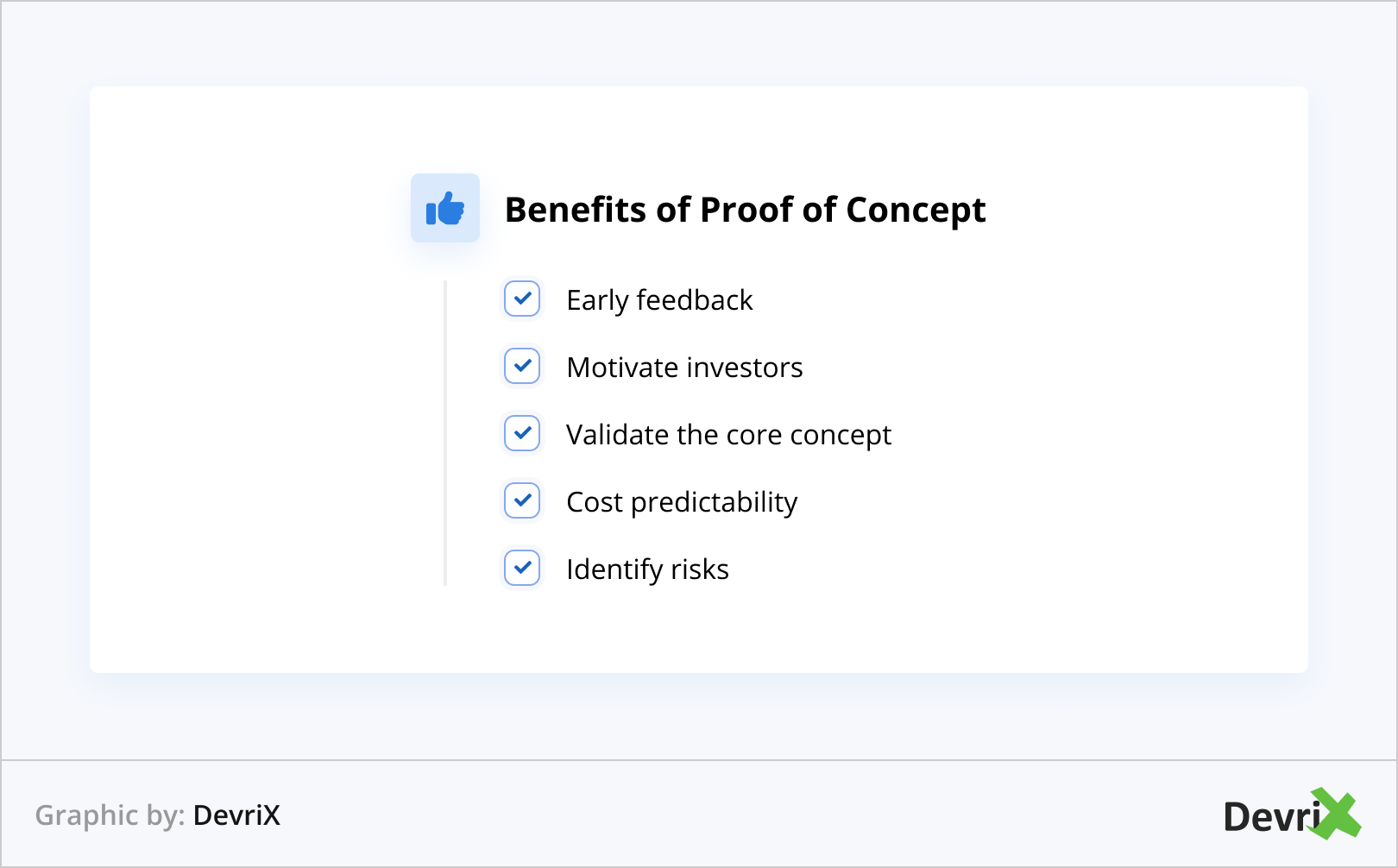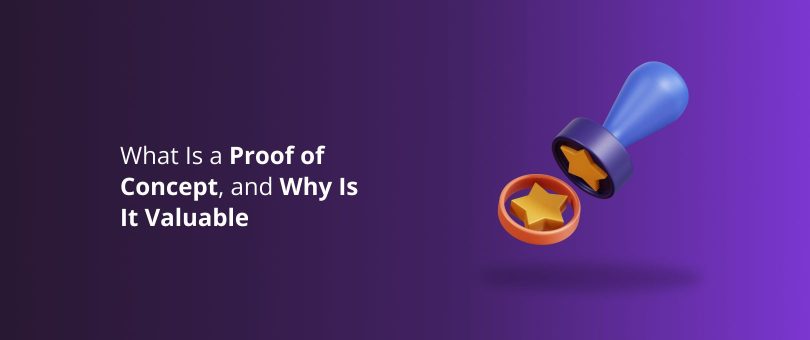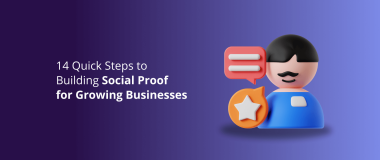When you get a good business idea, how do you know it is going to work? You see, ideas are great and all, but if you want them to overcome the “idea” phase, you need to create a plan.
An essential first step behind the process of deciding whether an idea is worth it or not, is creating a proof of concept.
Let us find out more.
Readers Also Enjoy: Write Your Business Plan: Tips from Business Consultants – DevriX
What Is a Proof of Concept?
Proof of concept (PoC) is evidence that an idea, business, or project plan is executable. Furthermore, this concept aims to gather feedback and insights from team members, in order to mitigate any unexpected risks.
Basically, a proof of concept is the theoretical demonstration of how the product/idea would potentially work, and how it would be used.
Benefits of Proof of Concept

How is a proof of concept beneficial to your business? We, at DevriX, usе the long-term retainers plan, which we find to be very important to the successful execution of projects and business plans.
There are multiple benefits of a PoC, especially when adopted at an early stage of project development. Here are some of the main benefits:
- Early feedback. You can gather information and feedback before the project starts, which allows you to make any necessary changes before you fully invest in the idea.
- Motivate investors. Showcasing a proof of concept can help you to present your idea, and outline its successful outcome, which can motivate investors to approve the project quicker while overcoming any objections they might have.
- Validate the core concept. The basic idea of a proof of concept is to validate the feasibility of your project. This can help you to identify any potential problems, and decide which idea to pursue and which to leave aside.
- Cost predictability. It is always hard to predict the exact cost of a project. Still, a PoC can give you a pretty accurate estimate of the overall costs. What’s more, you can find hidden costs, and ways to save money.
- Identify risks. You can find potential risks, and think of ways to overcome them before the project has started. Essentially, this is really important, as you are able to spot obstacles, and figure out how to deal with them before they become a problem.
Readers Also Enjoy: How to Grow a Small Business in 2023? – DevriX
What Should a Proof of Concept Include?
Generally, a PoC needs to include a detailed explanation of what the proposed product/project does, what its goal is, and how it is to be achieved.
When creating a proof of concept document, you should answer the following questions:
- Are you able to reliably produce the product/service in a real world environment?
- What is the current and potential market for that product/service?
- Will the proposed idea work as expected?
- What technologies are required for the product/service to work smoothly and deliver the intended results?
- Is there any feedback you can incorporate into the final product/service?
Readers Also Enjoy: 11 Tips to Increase eCommerce Traffic [And Boost Revenue] – DevriX
How to Write a Proof of Concept
The key to the successful execution of a business idea or plan is the proof of concept. And to write a good PoC, you need to have a:
- Defining criteria for success
- Documentation describing the process
- Evaluation of the time and effort required
- Planning the necessary resources
- Proposal for further development once PoC is accepted
Now, you might be wondering about the difference between a proof of concept and a prototype or MVP. All three, however, are different, so let’s make a comparison.
Proof of Concept vs. Prototype
When proof of concept and prototype are considered, note that they have different purposes meant to produce different results.
| Proof of Concept | Prototype |
| Theoretical validation of an idea/project/plan | Practical test of usability, design, functionalities |
| Planning if an idea can become a product/service/project | Early draft of a final product/project/concept |
| Test and explore the viability of an idea | Determine how to develop the product when it moves to full production |
| Identify potential technical/business/logistical issues | Present a draft of what the final product might look like |
Readers Also Enjoy: Website Design Concepts: How to Design Concepts in No Time – DevriX
Proof of Concept vs. MVP
A minimum viable product (MVP) is also quite different from a proof of concept.
| Proof of Concept | MVP |
| Theoretical validation of an idea/project/plan | Product version with enough features to be tested by early customers |
| Test and explore the viability of an idea | Gather user feedback |
| Identify potential technical/business/logistical issues | Highlights the value of the final product |
| Conceptual planning of a product | First working version of your product |
Readers Also Enjoy: Product Marketing: The MVP of Launching a New Product – DevriX
Proof of Concept in Business: Examples
Now, let us look at some cases for various businesses, where a proof of concept can be used.
Proof of Concept in Software Development
A company developing software needs a proof of concept when it comes to understanding the current needs of the market.
New ideas that address those needs have to be properly planned, including the required time for execution, cost, and current technologies that would support it.
Proof of Concept in Online Services
Businesses that offer services, especially big companies, benefit from PoC, since it would be very expensive to launch a new project/service without thorough testing beforehand.
Creating a sort of simulation of the new features provides enough time to research, gather feedback and get a better understanding of the need for and viability of said feature or service.
Proof of Concept in New Food Products
Food companies also commonly use the proof of concept process, in order to maximize profitability, and comprehend user demand. For example, they conduct user surveys regarding their customers’ interest in various flavors, shapes, and styles of snacks.
Readers Also Enjoy: Canary Testing: What Is It, and How Can You Benefit From It? – DevriX
In Conclusion
A proof of concept can be an extremely valuable tool to set proper goals, plans, and guarantee the success of your business ideas through cost prediction, early feedback, and identification of potential risks.
With PoC, your chances of developing a mere idea into a fully functional and profitable product or service are greatly increased. By proving that you can do it, you can then go for it, and ensure that the fate of your business will be bright.




